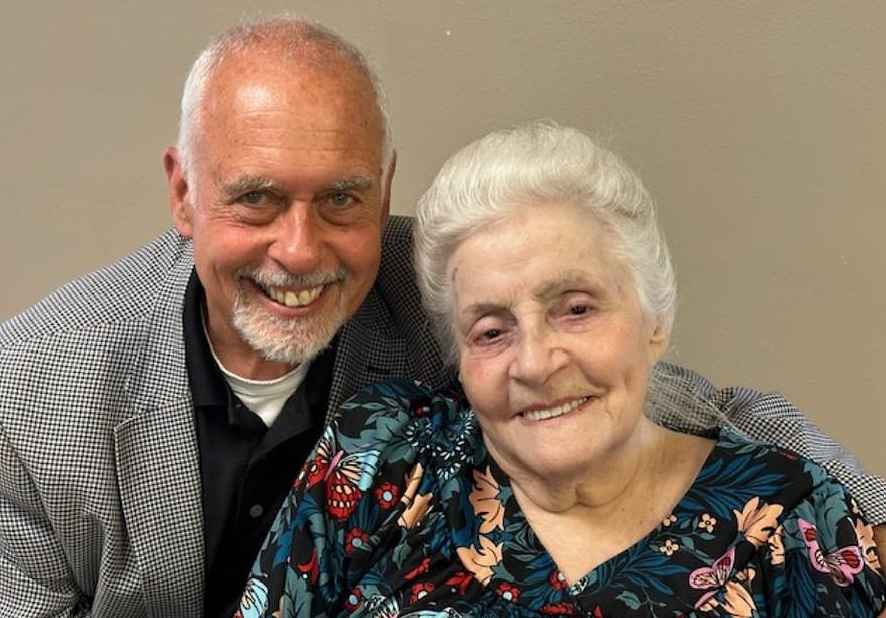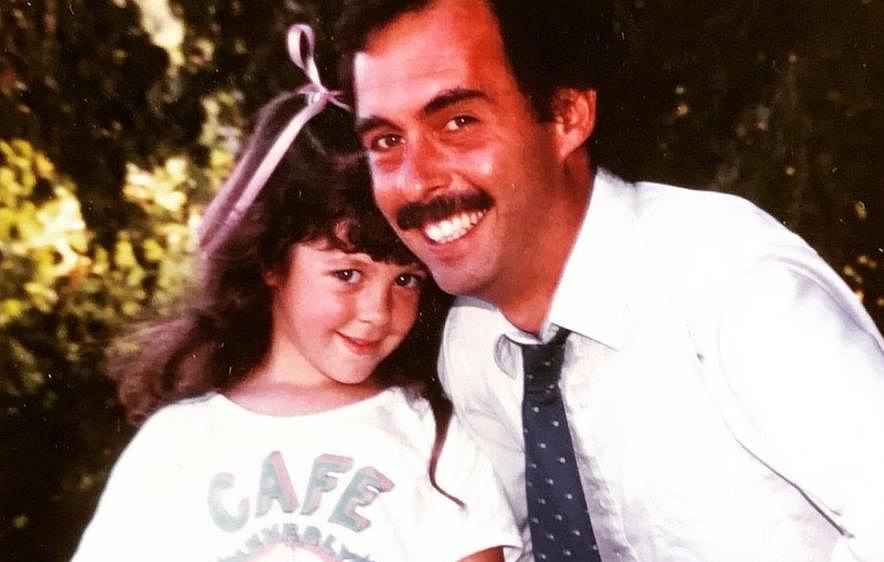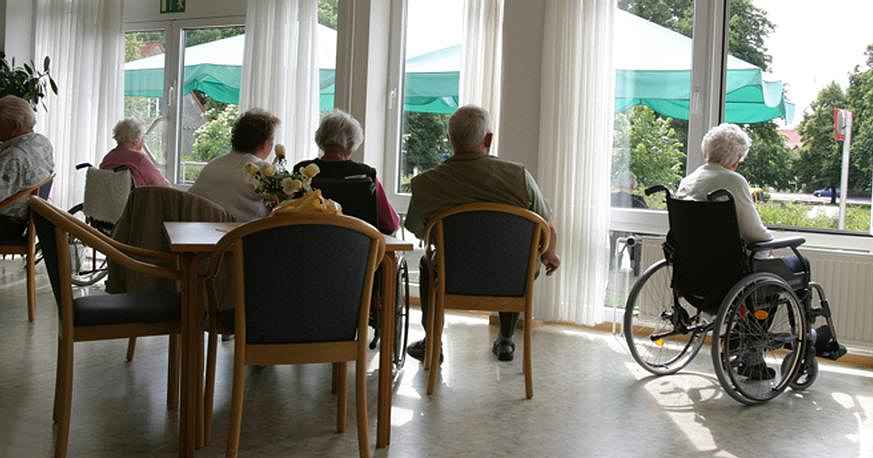






See listing of Recent and Most Popular articles on the Home Page
Health & Wellness
Category: Life Events / Topics: Personal Stories (Biography/Autobiography) • Coping • COVID-19 • Dying and Death • Health Care • Memory (failing, improving) • Relationships • Social Issues
The Sunset
Posted: December 2, 2022
There are plenty of reasons to see nursing homes as sad, neglectful places. There are also reasons to see them as something else entirely…
Editor's Note: Following is a n excerpt from a much longer article by Lisa Bubert, who reflects on how a six-month job in a nursing home at age 19 prepared her for dealing with what she describes as the sunset time of her own grandmothers. Here is the essence of her message. There's a lot more, much of it stories of her personal experience that you'll want to read by following the link at the bottom of the page.
When I was 19, a nursing home hired me to work as an aide. There wasn’t much to the interview that I remember, other than I agreed to come to work on time and take the certification course the home provided. In this course, I learned how to lift a frail person out of bed, how to wipe them, how to bathe them if bed-bound; how easily their skin tears, and how to touch so as not to cause a bruise. The head nurse was a short man with a thick north Texas accent and a handlebar mustache who finished the training with the advice to “treat each resident like they’re your grandmama.” The course lasted two weeks and came with the stipulation that I stay for at least six months. Employee turnover was high.ory . . .
None of my friends understood why I wanted to work there. Young people are scared of old people, which is to say all people are scared of old people, which is to say all people are scared of death. Death hung over the place like a ghost, the hospital smell embedded daily in my clothes. All I can say is that I wanted a real job and I liked old people. I’d already seen my share of dead bodies, thanks to the slew of open-casket funerals that came with a childhood spent in an aging rural community. Also, the home was the only place that called back when I applied. . . .
The entire elder care system operates on a mantra of out of sight, out of mind. Medical residencies feature little to no geriatric training; the profession experiences an annual turnover rate of 60 percent. A 2021 study found that turnover in nursing care facilities skyrocketed during the COVID-19 pandemic, with the average annual rate in 2020 at a shocking 128 percent. In other words, if you apply for a job at a nursing home, you can pretty well count on getting hired. For someone with little access to education living on the edge of poverty, this fact is a godsend. Yet, caveats lurk. There are countless reports of understaffing in nursing homes, underfunding, limited regulations where it matters (staff pay, patient ratio) and reels of red tape where it doesn’t (hours of required paperwork that detail how many ounces of water the resident drank, but not how they cry at night for their children). And while you may be trained on how to wipe from front to back, there’s no training to prepare you for the psychic toll of watching your people suffer until they die.
There are plenty of reasons to see nursing homes as sad, neglectful places, and I’m sorry to say that my experience working in one did not change this perception. But I can also say that the perception has less to do with staffing, funding, and regulations (or lack thereof) and much more to do with our country’s fear of death, its rejection of vulnerability, and its subsequent inability to see the inherent dignity in people—especially in their vulnerable moments.
Dying is a vulnerable act. There’s rarely the serenity we see in deathbed scenes. Instead, the pragmatic, much of which we view as shameful: the slow loss of function, the bowels loosed in bed, the sweat stench, the tonguing mouth, the hallucinatory terror, the whimpers, the rattle. You spent all this time learning how not to trip over your own feet and here you are now—older than anyone else in the room and forced to use a stroller, swaddled in diapers. You revert to a time when your mother held you, only your mother is gone. Your children (if you remember them) don’t visit, and why is that?
Shame stems from a fear of disconnection. We live in a culture that increasingly connects old age with disconnection rather than dignity. Our friends pass on, our families visit less and less, we spend more time alone, helpless to arrest the breakdown of our own bodies. It’s no wonder the elderly—and those who care for the elderly—are steeped in a hot tea of shame. And because shame repels, it is no wonder our policies and priorities for eldercare are so lax as to be nearly criminal. Out of sight. Out of mind.. . .
• • •
One of my favorite tasks at the nursing home was supervising the 4 p.m. smoke break. Many of the residents were lifetime smokers and no nursing facility was going to curb that habit, so after breakfast and before dinner we’d wheel everyone to a small, glassed-in room off the corner of the dining hall. It stunk like only a room solely used by smokers could stink. Staff hated covering smoke time because of it. But it was also 15 minutes in which all you had to do was light cigarettes and make sure nobody burned themselves. I volunteered every time.
Everyone’s assigned cigarettes were kept in locked cabinets. The families were responsible for keeping them stocked; no begging or borrowing loosies allowed. I’d separate the packs from their cartons, hand everyone their brand of choice, light them all with the management-issued lighter. Residents would relax back in their chairs, stare out the glass enclosure as though it was a window that looked outside, and drift off into some other beautiful world.
I loved smoke time for the pure peace and bliss of it; not just mine, but theirs. You could see their younger selves when it was smoke time, slouched back like a bunch of hoodlums, yakking and jawing like they were kids getting away with something. The muscle memory of the ritual—inhaling, holding, flicking into ashtrays, stubbing the smoke out when they were finished—transcended dementia. A few might forget, long lines of ash dangling at the ends of their lit cigarettes. But that’s why I was there. To remind them.
Read the full article at Longreads
Search all articles by Lisa Bubert
Posted: December 2, 2022 Accessed 391 times
![]() Go to the list of most recent Health & Wellness Articles
Go to the list of most recent Health & Wellness Articles
![]() Search Health & Wellness (You can expand the search to the entire site)
Search Health & Wellness (You can expand the search to the entire site)
![]() Go to the list of Most Recent and Most Popular Articles across the site (Home Page)
Go to the list of Most Recent and Most Popular Articles across the site (Home Page)
 Loading requested view...
Loading requested view...
